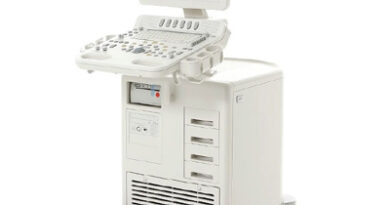How to Choose the Right Elder Care Facility for Your Loved Ones
Choosing the right elder care facility for a loved one is a significant decision that requires careful consideration. The goal is to find a place where they feel safe, cared for, and comfortable while meeting their specific needs. Here’s a step-by-step guide to help you make the best choice.
1. Assess Their Needs
Before exploring options, it’s essential to evaluate your loved one’s care requirements.
- Health Needs: Do they require medical attention for chronic conditions, memory care for dementia, or help with daily activities?
- Independence Level: Are they mostly independent or do they need 24/7 assistance?
- Social Preferences: Do they enjoy group activities, or do they prefer a quieter environment?
Creating a list of their needs will help you narrow down the type of facility that’s most suitable.
2. Research Types of Facilities
Elder care facilities come in various forms, each catering to specific needs:
- Assisted Living: Ideal for those who need some help with daily tasks but want to maintain a level of independence.
- Nursing Homes: Suitable for individuals who require constant medical supervision and specialized care.
- Memory Care Units: Designed for residents with Alzheimer’s or other forms of dementia.
- Independent Living Communities: Best for active seniors who prefer a maintenance-free lifestyle with access to amenities.
Understanding the differences between these options can help you identify the right fit.
3. Create a Budget
The cost of elder care facilities can vary significantly. Create a budget by considering:
- Monthly fees, including rent, meals, and activities.
- Additional costs for medical care, therapies, or special services.
- Insurance coverage or government programs that may offset expenses.
Ensure that the facility you choose aligns with your financial resources without compromising quality.
4. Research and Shortlist Facilities
Once you know the type of care needed, begin researching facilities in your area:
- Read online reviews and testimonials.
- Ask for recommendations from friends, family, or healthcare professionals.
- Check if the facility is licensed and accredited by relevant regulatory bodies.
Create a shortlist of potential facilities to visit.
5. Visit the Facilities
A personal visit is crucial in evaluating a facility’s environment and services. When visiting, pay attention to:
- Cleanliness: Is the facility well-maintained and hygienic?
- Staff Interaction: Do the staff seem friendly, respectful, and attentive?
- Safety Measures: Are there grab bars, emergency call systems, and secure premises?
- Resident Engagement: Are the residents engaged in activities or socializing?
Trust your instincts about how welcoming and comfortable the facility feels.
6. Ask Questions
Prepare a list of questions to ask during your visit, such as:
- What services are included in the monthly fee?
- How is medical care managed? Is there a doctor or nurse on-site?
- What is the staff-to-resident ratio?
- What types of activities and social programs are available?
- Are there transportation services for appointments or outings?
Their answers can help clarify whether the facility aligns with your expectations.
7. Review Safety and Health Standards
Ensuring the safety of your loved one is paramount. Investigate the facility’s:
- Emergency response procedures.
- Fire safety protocols.
- Staff training programs, especially for medical emergencies or dementia care.
- Inspection reports or records of compliance with health standards.
This step provides reassurance that your loved one will be in safe hands.
8. Consider Location and Accessibility
The proximity of the facility to family members or friends can make a big difference. A nearby location allows for frequent visits and involvement in your loved one’s care. Additionally, ensure the facility is accessible for transportation to medical appointments or other needs.
9. Understand the Contract
Before signing any agreement, carefully review the contract details:
- Fee Structure: Understand what’s included and what incurs additional charges.
- Termination Policy: What happens if your loved one needs to move out or if their care needs change?
- Refund Policy: Are there refunds for unused services in case of an early move?
Don’t hesitate to ask questions or consult a lawyer if you’re unsure about any terms.
10. Observe Trial Periods or Temporary Stays
Many elder care facilities offer trial stays, allowing your loved one to experience the environment before committing long-term. This trial period can provide valuable insight into whether the facility is a good fit.
11. Include Your Loved One in the Decision
Whenever possible, involve your loved one in the decision-making process. Their input on factors like room choices, activities, or location can help them feel more comfortable with the transition.
12. Follow Up After Placement
Once your loved one moves into the facility, continue to monitor their well-being:
- Visit regularly to ensure they are happy and receiving proper care.
- Maintain open communication with staff about any concerns or changes in their needs.
- Encourage your loved one to share their experiences and address any issues promptly.
Conclusion
Choosing the right elder care in Chennai facility requires thorough research, careful planning, and thoughtful consideration of your loved one’s needs. By taking the time to evaluate options and involve them in the process, you can ensure they find a place where they feel safe, valued, and supported. A well-chosen facility can significantly enhance their quality of life, providing peace of mind for both them and your family.




